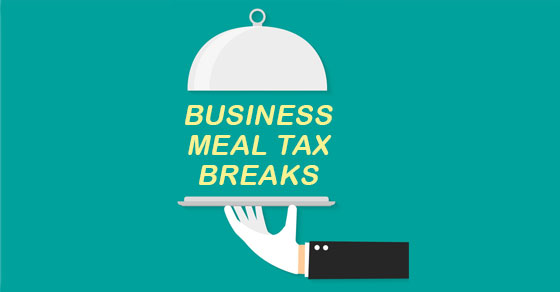Weekly Tax Brief
Some people are required to return Economic Impact Payments that were sent erroneously
- Details
- Published: 09 July 2020 09 July 2020

Economic Impact Payments (EIPs) are being sent to eligible individuals in response to the financial impact caused by COVID-19. However, the IRS says some payments were sent erroneously and should be returned.
Read more: Some people are required to return Economic Impact Payments that were sent erroneously
If you’re selling your home, don’t forget about taxes
- Details
- Published: 01 July 2020 01 July 2020

Traditionally, spring and summer are popular times for selling a home. Unfortunately, the COVID-19 crisis has resulted in a slowdown in sales. Still, many people are selling this year. If you’re one of them, it’s a good time to review the tax implications. Contact us with questions.
Read more: If you’re selling your home, don’t forget about taxes
Rioting damage at your business? You may be able to claim casualty loss deductions
- Details
- Published: 12 June 2020 12 June 2020

The recent riots around the country have resulted in many storefronts, office buildings and business properties being destroyed. In the case of stores and businesses with inventory, looters stole products after ransacking property. A commercial insurance property policy should generally cover some, or all, of the losses. But a business may also be able to claim casualty property loss or theft deductions on its tax return. Contact us for more information about your situation.
Read more: Rioting damage at your business? You may be able to claim casualty loss deductions
Seniors: Can you deduct Medicare premiums?
- Details
- Published: 09 June 2020 09 June 2020

If you’re age 65 and older, and you have basic Medicare insurance, you may need to pay additional premiums to get the level of coverage you want. The premiums can be costly, especially if you’re married and both you and your spouse are paying them. But there may be a silver lining: You may qualify for a tax break for paying the premiums. However, it can be difficult to qualify to claim medical expenses on your tax return. For 2020, you can deduct medical expenses only if you itemize deductions and only to the extent that total qualifying expenses exceeded 7.5% of adjusted gross income. Contact us if you want more information about deducting medical expenses, including Medicare premiums.
Business meal deductions: The current rules amid proposed changes
- Details
- Published: 04 June 2020 04 June 2020

One tax break that President Trump has proposed to help restaurants and entertainment venues is an increase in business meal and entertainment deductions. We’ll let you know if a law passes that enhances deductions. In the meantime, let’s review the rules. Before the pandemic hit, many businesses spent money “wining and dining” customers, employees and others. Under current law, entertainment expe nses aren’t deductible. However, you can deduct 50% of the cost of business-related food and beverages, if you meet certain requirements. If you buy food and beverages at an entertainment event, you can deduct 50% of the cost, but only if business was conducted right before, during or afterwards.
Read more: Business meal deductions: The current rules amid proposed changes
Student loan interest: Can you deduct it on your tax return?
- Details
- Published: 02 June 2020 02 June 2020

Many taxpayers with student loans have been hard hit by the economic impact of COVID-19. The CARES Act contains some help. It allows borrowers with federal student loans to stop making monthly payments until Sept. 30, 2020. If you do make student loan payments, you may be able to deduct the interest on your tax return, depending on your income and subject to certain requirements. The maximum amount of student loan interest you can deduct each year is $2,500. For 2020, the deduction is phased out for married taxpayers filing jointly with adjusted gross income (AGI) between $140,000-$170,000 ($70,000-$85,000 for single filers). The deduction is unavailable for taxpayers with AGIs above that.
Read more: Student loan interest: Can you deduct it on your tax return?
IRS releases 2021 amounts for Health Savings Accounts
- Details
- Published: 29 May 2020 29 May 2020

The IRS recently released the 2021 inflation-adjusted amounts for Health Savings Accounts (HSAs).
For calendar year 2021, the annual contribution limitation for an individual with self-only coverage under a HDHP is $3,600. For an individual with family coverage, the amount is $7,200. This is up from $3,550 and $7,100, respectively, for 2020. For calendar year 2021, an HDHP is a health plan with an annual deductible that isn’t less than $1,400 for self-only coverage or $2,800 for family coverage. In addition, annual out-of-pocket expenses (deductibles, co-payments, and other amounts, but not premiums) can’t exceed $7,000 for self-only coverage or $14,000 for family coverage.
Read more: IRS releases 2021 amounts for Health Savings Accounts
Fortunate enough to get a PPP loan? Forgiven expenses aren’t deductible
- Details
- Published: 22 May 2020 22 May 2020

The IRS has issued guidance clarifying that certain deductions aren’t allowed if a business has received a Paycheck Protection Program (PPP) loan. Specifically, an expense isn’t deductible if both: 1) the payment of the expense results in forgiveness of a loan made under the PPP, and 2) the income associated with the forgiveness is excluded from gross income under the Coronavirus Aid, Relief, and Economic Security (CARES) Act. IRS Notice 2020-32 states that “this treatment prevents a double tax benefit.” However, two members of Congress say they’re opposed to the IRS stand on this issue. They say they’ll seek legislation to make certain expenses deductible. Stay tuned.
Read more: Fortunate enough to get a PPP loan? Forgiven expenses aren’t deductible
Did you get an Economic Impact Payment that was less than you expected?
- Details
- Published: 18 May 2020 18 May 2020

Did you get an Economic Impact Payment (EIP) that was less than you expected? The federal government is sending EIPs to help mitigate the effects of COVID-19. If you’re under a certain adjusted gross income (AGI) threshold, you’re generally eligible for the full $1,200 ($2,400 if married filing jointly). And if you have a “qualifying child,” you’re eligible for an additional $500. Some people have received EIPs for less than they were expecting because they make too much money to receive the full EIP. Others may think their children are eligible for a payment and they aren’t. Still others may have debts, such as past-due child support or garnishments from creditors, that reduced their EIPs.
Read more: Did you get an Economic Impact Payment that was less than you expected?
Do you have tax questions related to COVID-19? Here are some answers
- Details
- Published: 11 May 2020 11 May 2020

The coronavirus (COVID-19) pandemic has affected many Americans’ finances. You may have questions about the implications. For example, if your employer is requiring you to work from home, can you claim home office deductions on your tax return? Unfortunately, if you’re an EMPLOYEE who telecommutes, home office expenses aren’t deductible through 2025. What about unemployment compensation? Is it tax able for federal tax purposes? Yes. This includes state unemployment benefits plus the temporary $600 per week from the federal government. (Benefits may also be taxed for state tax purposes.) Contact us if you have questions or need more information about these or other COVID-19-related tax issues.
Read more: Do you have tax questions related to COVID-19? Here are some answers





